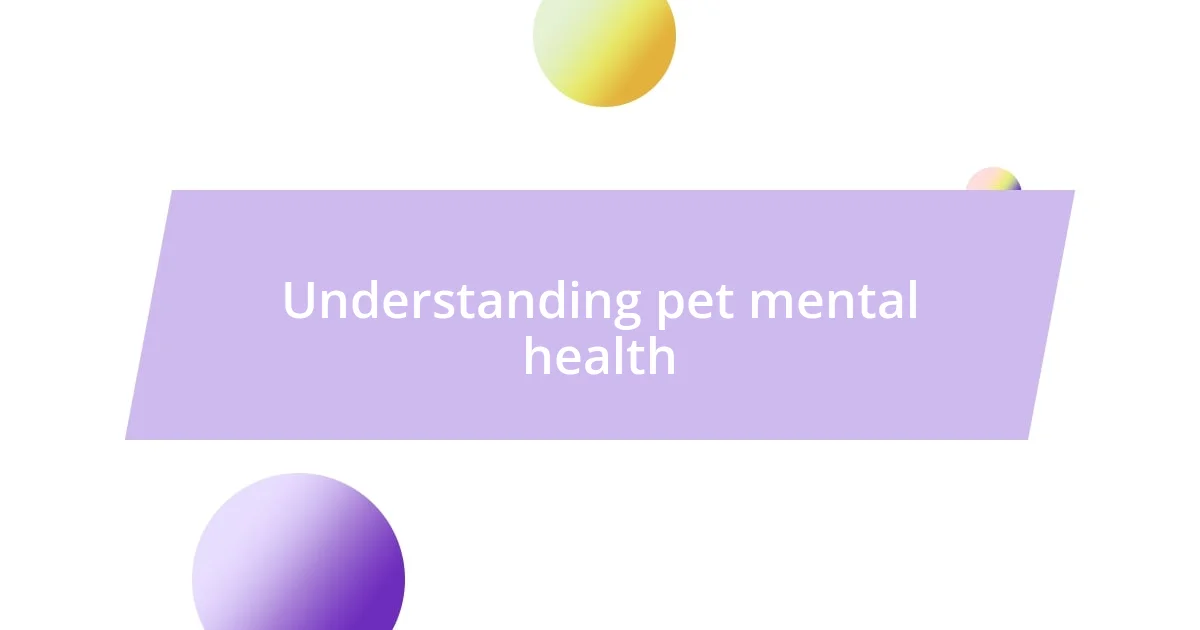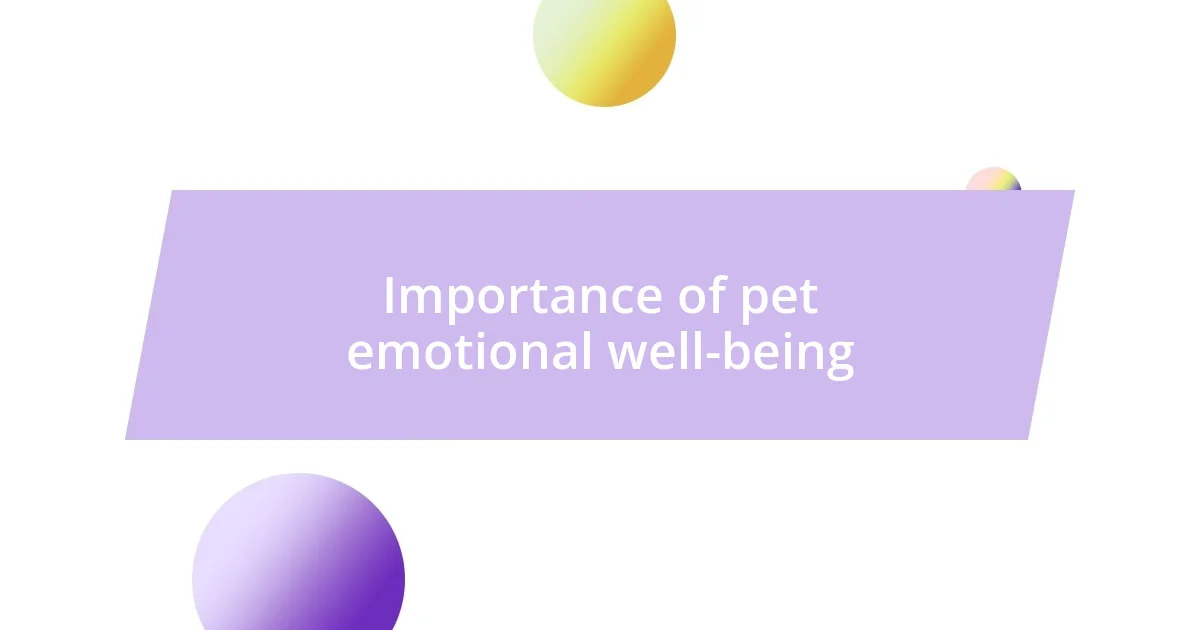Key takeaways:
- Understanding pet mental health involves recognizing their emotional complexities and behavioral changes during stressful situations.
- Emotional well-being in pets is crucial; neglecting their needs can lead to behavioral issues and impacts both their happiness and physical health.
- Seeking professional help for pets with behavioral concerns is essential and can provide tailored strategies to improve their quality of life and strengthen the pet-owner bond.

Understanding pet mental health
Understanding pet mental health goes beyond just observing their behavior; it involves recognizing the emotional complexities that our furry companions experience. For instance, when my dog, Max, would start pacing around the house, it made me ponder what was genuinely troubling him. Was it boredom, anxiety, or perhaps even a feeling of loneliness?
I remember a time when my cat, Whiskers, started displaying signs of withdrawal after we moved to a new home. It struck me how significant a shift in environment could impact a pet’s emotional well-being. Just like us, they have their own personalities and stressors, and understanding pet mental health means being attuned to these nuances.
Consider this: have you ever noticed your pet acting differently during stressful times, like thunderstorms or holidays? It’s these moments that reveal a lot about their mental state. Recognizing signs of anxiety, depression, or stress in pets is crucial because it allows us to better support them, transforming their emotional landscape and enhancing their overall quality of life.

Importance of pet emotional well-being
Emotional well-being in pets is just as important as their physical health. I observed this firsthand when my dog, Bella, began to refuse her favorite toys after my partner and I had a long, stressful week at work. It dawned on me that animals are highly perceptive; they can sense our emotions and often mirror our feelings. This connection makes it vital to provide them with a safe space to express themselves, as their emotional state can directly affect their behavior and overall happiness.
Here are some key reasons why pet emotional well-being matters:
- Pets experience a range of emotions, from joy to anxiety, similar to humans.
- Neglecting their emotional needs can lead to behavioral issues, such as aggression or withdrawal.
- A happy pet typically means a happier home, fostering a more harmonious environment.
- Understanding and addressing their emotional needs fosters a stronger bond between pet and owner.
- Enhancing a pet’s emotional well-being can lead to improved physical health, as stress impacts the immune system.
It’s a reminder that we are not just caretakers but companions who share a journey with these wonderful beings.

Seeking professional help for pets
Seeking professional help for pets is an essential step when things seem off with their behavior or well-being. I remember when my dog, Coco, started barking excessively at night, which was unusual for her. After a few sleepless weeks, I realized I couldn’t just brush it off, so I consulted a veterinarian who specialized in animal behavior. It turned out Coco was reacting to the stress of new neighbors, and the expert’s guidance offered me practical strategies to help her cope.
It’s interesting how many pet owners hesitate to seek professional help, thinking it’s not necessary. Have you ever felt unsure about reaching out? I certainly did! But then I learned that just as we consult specialists for our own mental health, our pets deserve the same protection and attention. Professional help can provide tailored solutions that can significantly improve our pets’ quality of life, easing our worries as pet parents.
Finding a vet or a pet behaviorist who understands mental health is crucial, and it’s not a one-size-fits-all process. When I found a local behavioral specialist for my cat, Luna, who had suddenly begun developing anxiety around strangers, it opened my eyes to the nuances of feline emotions. After just a few sessions, I could see the changes in her behavior, and the relief I felt knowing she was getting the help she needed was profound. Seeking professional advice can feel intimidating, but it often leads to deeper connections and happier pets.














